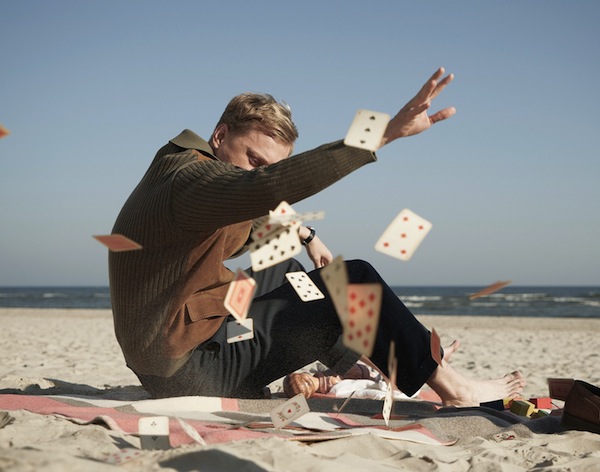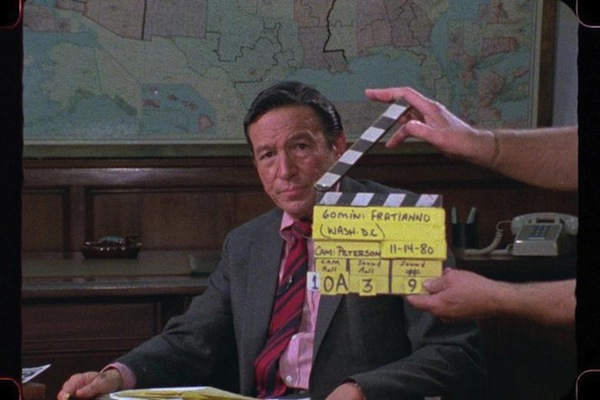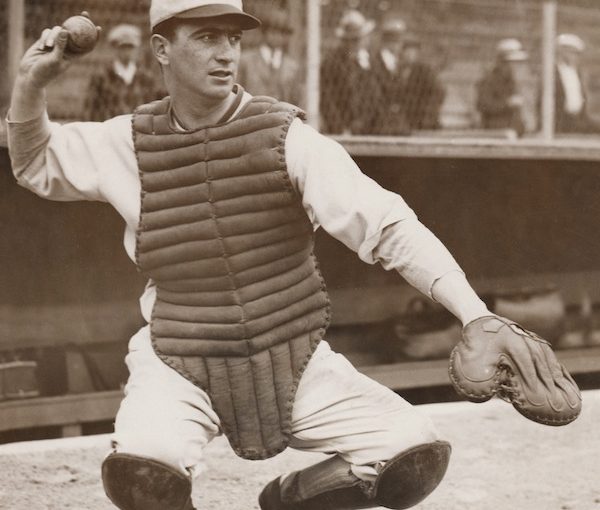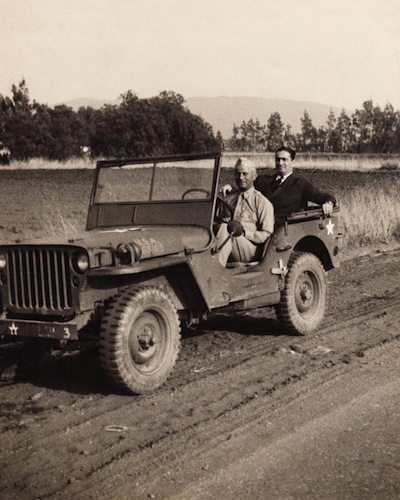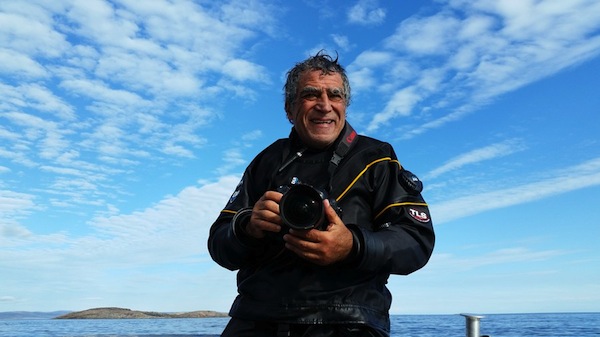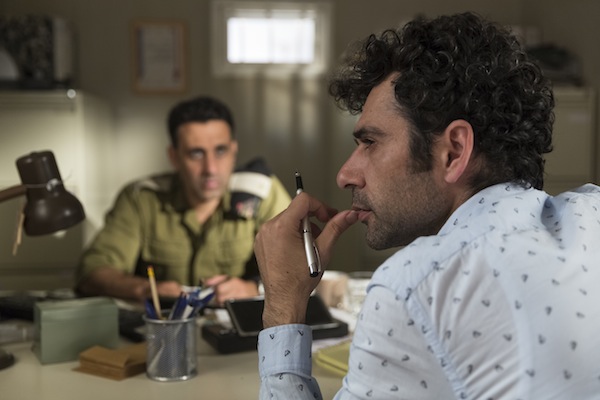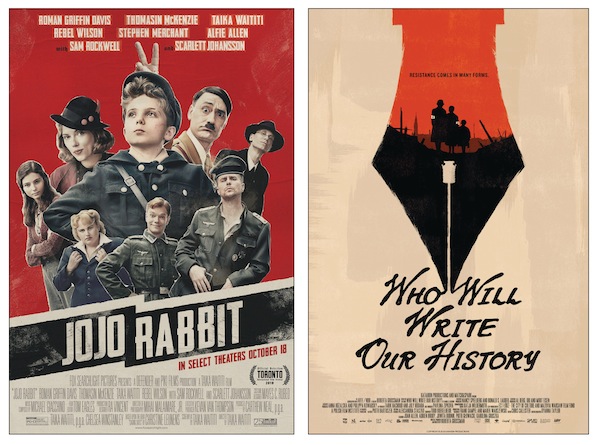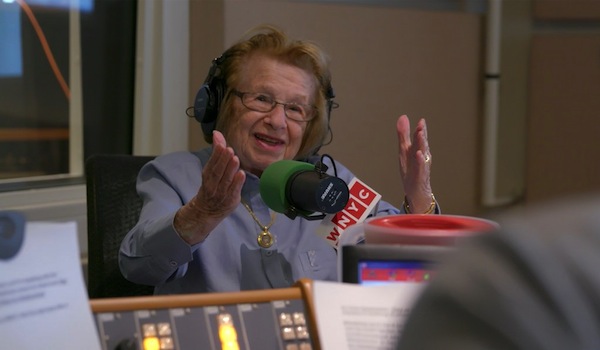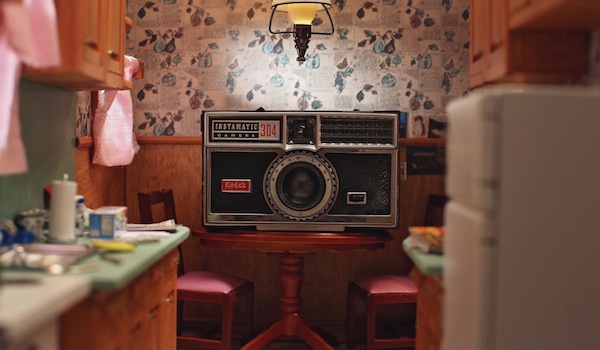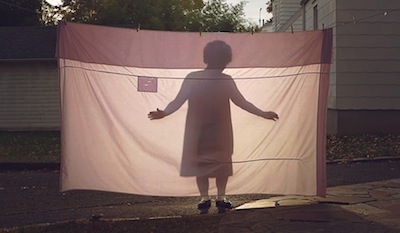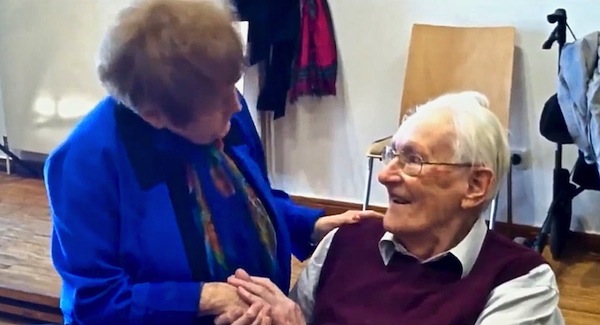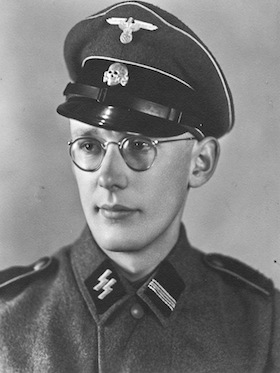Alegría screens at the Rothstein Theatre March 19, and online March 19-26. (photo from vjff.org)
You can pick your friends, the old saying goes, but you can’t pick your family. For Alegría, a prerequisite of adulthood is distancing from relatives and interacting with them on her terms.
The vital 40-something protagonist of Alegría, screening in the Vancouver Jewish Film Festival (vjff.org), has deliberately carved out a self-centred existence in her quiet hometown of Melilla, a small Spanish city on the northern coast of Africa. Alegría (Cecilia Suárez) Facetimes with her kibbutznik daughter and directs the young Muslim woman who cooks and cleans for her, relishing her independence.
Warm colours and inviting interiors, however, signal from the outset that Alegría is going to be a story of connection rather than isolation, of love supplanting loneliness and redemption trumping regret. In her satisfying and touching feature debut, Spanish director and co-writer Violeta Salama’s generosity extends well beyond Alegría to the young women who enter her orbit.
But none of that is on the table when Alegría gets a call that her Orthodox brother, sister-in-law and niece are coming to Melilla for the latter’s wedding to a local guy. They plan to stay at Alegría’s place – the house where she and her brother grew up – invading her space and brushing the cobwebs from her dormant Sephardi Jewish identity.
Alegría has literally sealed off the past – mezuzot, photos, furniture and menorot behind a locked door. Secular to the point of caustic irreverence, Alegría views her assimilation as an emblem of freedom and enlightened coexistence. Bit by bit, though, she will realize that she has denied a core component of her character.
Alegría doesn’t define herself in terms of or in reaction to men, and hasn’t for a long time. Yet the tough love, bordering on lack of empathy, that this stalwart feminist evinces for Yael, the bride, and Dunia, her part-time housekeeper, is shocking.
Yael is used to obeying her father but is beginning to doubt the merits of transferring that acquiescence to her soon-to-be husband. Dunia’s brother, the head of that household, stands in the way of her dream of studying drawing in Paris.
Women escaping the constraints, and embracing the ties, of family has long been the stuff of melodrama. But the filmmaker adopts a lighter tone with humorous bits that undercut the seriousness with which the characters take their respective situations.
“I’d cut my foot off before stepping into a synagogue,” Alegría proclaims in a seemingly unambiguous rejection of ritual, tradition and faith. But when she visits the rabbi to reserve the mikvah for the bride and Yael’s mother, their banter suggests that he and Alegría had a youthful romance (while opening the window to a potential future relationship). The synagogue, therefore, doesn’t represent a religious institution or unhappy family memories to Alegría. It’s just a reminder of who she used to be – or, more accurately, who she is.
One of the pleasures of Alegría is that it unfolds in a calm, civilized setting that feels like an oasis. No sirens or boom boxes jangle our nerves, and the family feudings rarely require the raising of voices.
Salama told an interviewer when she was completing the film in 2021: “To create Alegría’s world, I wanted to steer away from the realism of life in a border town, a major port, instead setting her down in the world of my childhood. I want to share the city as I see it, the city I carry inside me, and so I recreated certain moments where the focus is entirely on these seemingly very different women who share the same problems and contradictions.”
To that end, the centrepiece of the film is an overnight outing to Dunia’s grandmother’s house, just over the border in Morocco, where the women cook, dance and toss an impromptu bachelorette party for Yael. They are free to live on their terms, fully self-sufficient, with no men in sight.
Alegría offers some passing yet pointed critiques of patriarchal autocracy, and the male characters are relegated to the edges of the frame. This is what used to be disparagingly called a “woman’s picture,” because it centres women’s demands – to be who they want to be – and desires – to avail themselves of every opportunity. The most gratifying aspect, however, is that the movie’s spirit of cooperation and, yes, coexistence ultimately touches every character.
Michael Fox is a writer and film critic living in San Francisco.


